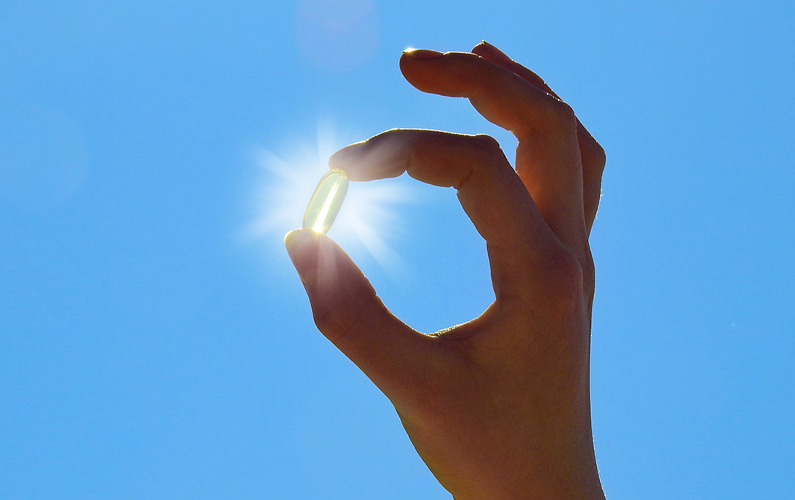Vitamin D is helpful for bones, mood and inflammation reduction. Vitamin D helps calcium to be absorbed from the intestines and to mineralize bone with it, thereby helping with bone growth and remodeling. Vitamin D also helps cell growth, neuromuscular and immune function.
Anyone with intestinal diseases, weight loss surgeries, obesity, kidney or liver disease are vulnerable to deficiency. The kidney and liver are needed to convert vitamin D into a usable form. Also, the lack of exposure to the sun is a risk factor for deficiency. It is estimated up to 1 billion people in the world are vitamin D deficient or insufficiency.
Vitamin B is not actually a vitamin but a pro-hormone that the sun activates it in the skin. There are vitamin D receptors (like hormones and unlike other vitamins) throughout the body in many organs.
Where is Vitamin D Helpful?
- BONE – Vitamin D is needed for bone mineralization, growth, and remodeling. Vitamin D helps absorb calcium, magnesium, and phosphate from the intestines. If there is not adequate vitamin D and calcium is low, the body will start getting calcium from the skeleton. This leads to weakened bones, osteomalacia, and osteoporosis.
- MOOD – Although the mechanism is unclear it is known that people with low vitamin D levels have higher rates of depression. Also, vitamin D supplementation improves the mood in depressed individuals. There are vitamin D receptors throughout the brain in the limbic system (emotional center).
- INFLAMMATION – Vitamin D insufficiency fails to inhibit the inflammatory cascade (cytokines) and having adequate levels show the inflammatory cascade is inhibited. Therefore if you have any kind of chronic inflammation such as asthma, cancer, diabetes or arthritis it would be helpful to have adequate levels of vitamin D.
Food Sources of Vitamin D are Limited
Source of vitamin D in food include:
- Cod Liver Oil
- Sardines
- Salmon
The Sun
The Sun is needed to synthesize vitamin D in the skin. It is the UV-B ultraviolet B radiation from the sun is what is needed. And UV-B can vary by the season, time of day, cloud cover, air pollution, and the geographic location. The amount of melanin in the skin (fair skin absorbs more, darker skin absorbs less) affects the amount absorbed.
Supplementation
- You want to purchase vitamin D3 NOT vitamin D2 which is often a prescription
- Oftentimes is it found with K2 (not K1 which is an anticoagulant/anticlotting) or MK-7
- 1000 – 2000 iu/day are typical doses but up to 5000iu/day is not unusual
- But because vitamin D is fat-soluble, it can be stored in the body and needs to be monitored with lab work
_____________________________________________________
Dr. Laurie Goldman is a medical doctor, psychiatrist, and functional medicine practitioner who’s been in private practice since 1999. She founded Clear Path Wellness to help her patients reach their maximum state of mental and physical health using a personalized, comprehensive approach powered by the principles of functional medicine, which treats the whole person, not just symptoms.
About Clear Path Wellness | Services | Contact

